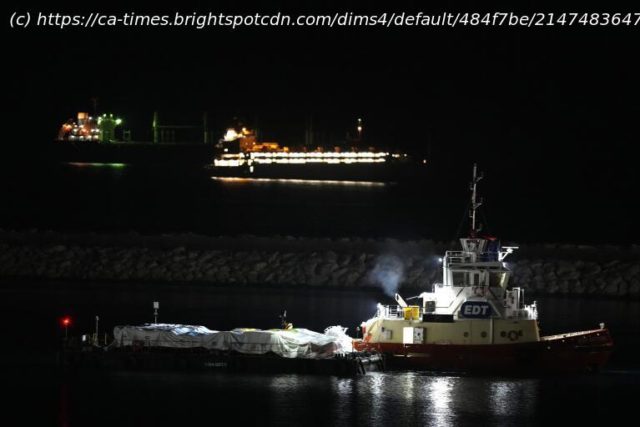With too little humanitarian aid reaching Gaza over land, the United States is leading an effort to build a floating pier that will allow deliveries by sea.
As Gaza’s 2.3 million residents face what United Nations officials describe as “catastrophic” levels of hunger, the United States, the European Union and other countries are beginning construction of a temporary pier to deliver aid by sea.
The first steps came over the weekend, when the U.S. Army announced that a ship was on its way to the Mediterranean Sea carrying the equipment to build the port — a project that could take two months.
Here’s a look at the project and its complications.
Since Hamas attacked southern Israel on Oct. 7, Israel has dramatically reduced deliveries of food and water and completely cut off gas to Gaza. The enclave had already been subject to blockade by Israel and Egypt since 2007.
Aid still enters Gaza from Israel through the Kerem Shalom border crossing as well as from Egypt through the Rafah crossing. But Israel refuses to open two additional crossings, and where it does allow passage, aid groups say its inspectors routinely deny the entry of legitimate humanitarian goods.
Once goods enter the enclave, distribution is a challenge. Israeli forces have been accused of attacking U.N. aid convoys as well as security personnel who are supposed to protect them.
In February, Israeli troops fired into a crowd that had surrounded an aid convoy at a checkpoint, killing 118 Palestinians, authorities in Gaza said. The Israeli military released a report this month saying that “troops did not fire at the humanitarian convoy, but did fire at a number of suspects who approached the nearby forces and posed a threat to them.”
Israel insists it does not impede aid. It blames the U.N. for the lack of distribution while accusing Hamas of diverting and selling assistance coming in for its own purposes.
The United States, France and others have airdropped tens of thousands of military-style meals into Gaza, but those deliveries have fallen far short of the 6.






